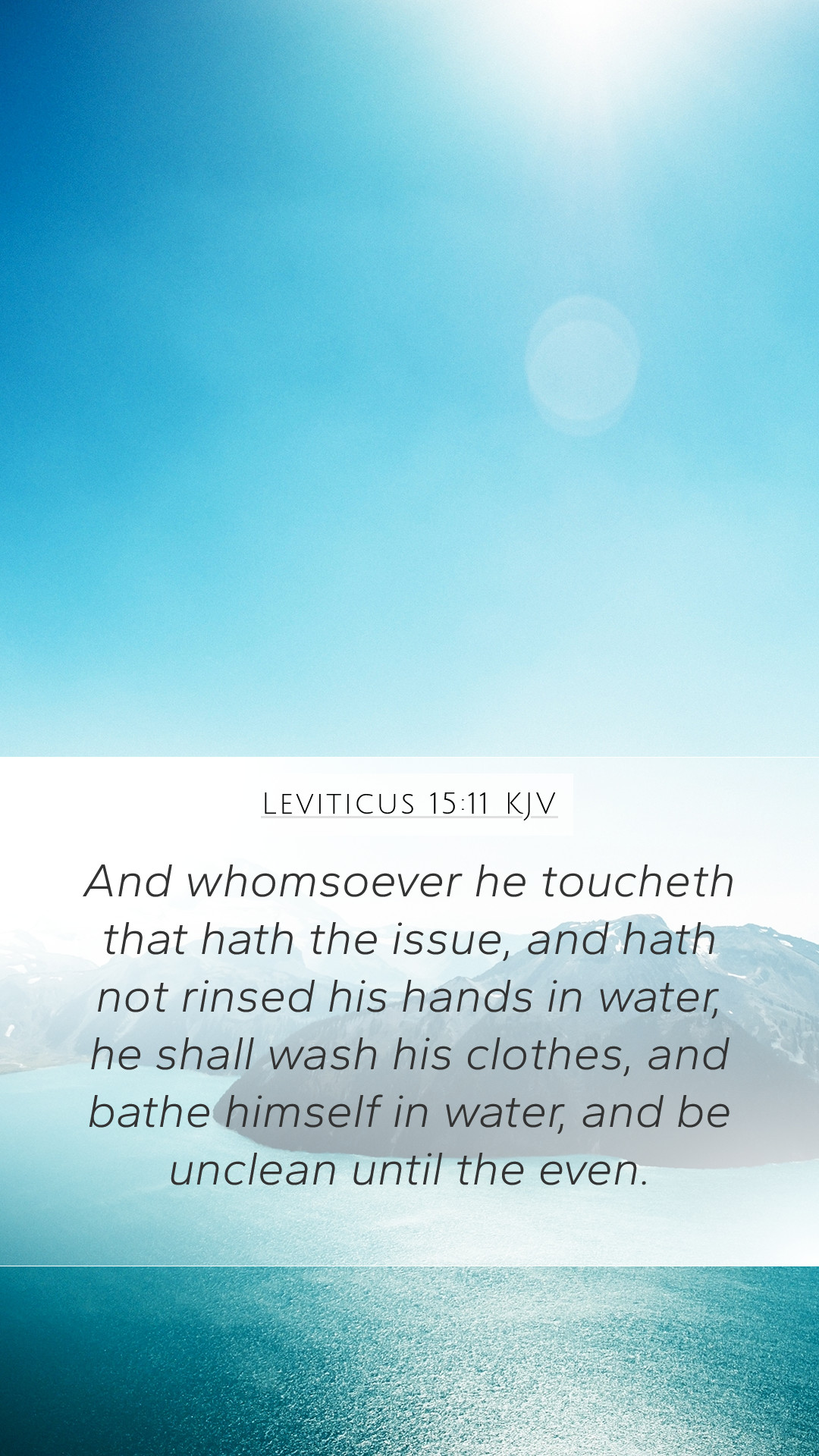Understanding Leviticus 15:11
Leviticus 15:11 states: "And whomsoever he toucheth that hath the issue, and hath not washed his hands in water, he shall wash his clothes, and bathe himself in water, and be unclean until the evening." This verse addresses the ceremonial cleanliness laws laid out for the Israelites, particularly focusing on the consequences of touching someone who is in a state of ritual impurity.
Bible Verse Meanings
The interpretation of this verse underlines significant aspects of ritual purity in ancient Israelite society. The laws concerning purity were detailed and integral to maintaining holiness within the Israelite community.
Bible Verse Interpretations
- Matthew Henry's Commentary: Henry elaborates on the concept of ceremonial cleanliness, emphasizing that touching an unclean person rendered one liable to the same impurity unless corrective measures were taken, such as washing and waiting until evening.
- Albert Barnes' Notes: Barnes highlights the importance of washing hands and clothes, indicating that such acts symbolize purification and the removal of defilement, which reflects broader spiritual truths of cleansing from sin.
- Adam Clarke's Commentary: Clarke discusses the social implications of these laws, pointing out that they promoted a communal understanding of purity and helped the Israelites maintain proper reverence in their worship of God.
Bible Verse Explanations
In essence, this verse serves as a reminder of the importance of ritual purity in maintaining a holy relationship with God. The need for washing—both hands and clothes—illustrates the seriousness of impurity, not just physically but spiritually as well.
In-Depth Scripture Analysis
This directive reflects the broader Jewish understanding of purity laws where physical acts symbolize deeper spiritual realities. By adhering to these laws, the Israelites were expressing their commitment to God's commands and their desire to remain in right fellowship with Him.
Historical Context ofBible Verses
The context of Leviticus lies within the ceremonial laws given to the Israelites after the Exodus from Egypt. These laws were integral to distinguishing the Israelites from surrounding nations. Ritual purity was not only about health but also about maintaining a separation to honor God’s holiness.
Applying Bible Verses to Daily Life
Modern readers can glean the importance of spiritual cleanliness and the need for self-examination in their own lives. Just as the Israelites had to recognize and rectify their physical purity, so too must believers today reflect on their spiritual state and seek God’s cleansing grace through Christ.
Related Bible Cross References
- Numbers 19:7-9: Discusses the purification process after contact with a dead body.
- Hebrews 10:22: Urges believers to draw near with a true heart in full assurance of faith, indicating the spiritual cleansing that Christ provides.
- 2 Corinthians 7:1: Encourages believers to cleanse themselves from every defilement of body and spirit, perfecting holiness in the fear of God.
Conclusion
Leviticus 15:11 embodies vital principles regarding the necessity of purity—both ritual and moral—that continues to inform the lives of believers today. This awareness of our spiritual state can foster a deeper understanding of Scripture and enrich our Bible study insights.
Keywords
This explanation incorporates relevant Bible verse meanings, Bible verse interpretations, Bible study insights, and understanding Scripture while also addressing questions related to the significance of Leviticus 15:11.


